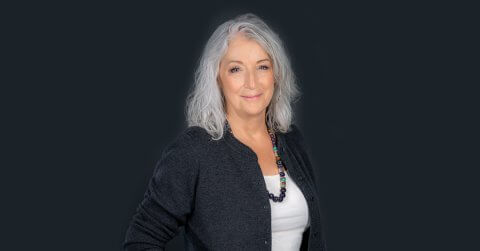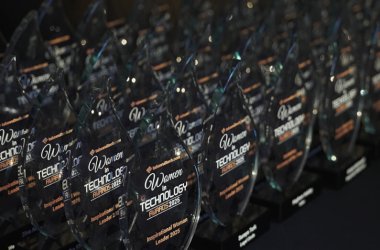Karen Worstell, Senior Cybersecurity Strategist at VMware, highlights the importance to think out of the box, be confident and look for opportunities to thrive in technology.

Many of your best experiences will be ones you don’t expect. An artist by nature with a curiosity for music, design, and visual arts, my younger self would be stunned by the career I’ve built in cybersecurity. However, the arts and IT are not as dissimilar as one may think. Success in both industries requires an ability to think differently, using creative instinct to build something brilliant. As a young woman venturing into the boys’ club of 1990s Silicon Valley, I protected this positivity fiercely, defending it as my greatest asset. Today, I’m an expert in my field, designing security strategies to keep businesses’ integrity safe as they pioneer within their markets.
I credit my brother for introducing me to the industry. As a young mother driven by a devotion to provide for my children’s futures, I turned to family for advice on my next career move. My brother, a keen hacker whiz, had an instant path for me; “Learn how to code!”. And so I did. Faced with the expectant eyes of my toddlers looking up at me (a familiar image for many women I’m sure) the world was daunting, but also promising. I have always been determined to succeed. Like many women, I suffer from self-doubt and the fear of failure is a recurring devil on my shoulder. However, rather than allow these obstacles to dismantle my goals, I devised a way forward. Here’s some of the things I focused on.
Be confident and say “yes” even when the path isn’t clear
My work in Silicon Valley started before cybersecurity became a field of its own repute. As a fresh computer science grad with specialist studies in encryption I was hired almost immediately. Cyber research and engineering skills were still niche and scarce, and my knowledge was proficient by default. Today, I’m part of a team with eagle eyes on the horizon of cybersecurity. I liaise with VMware customers on their priorities, and we collaborate to fortify their security roadmaps. IT is a perfect fit for the optimist and the opportunist because the work is all about creating new solutions and ‘doing better’.
I speak to many young women who put expectations on themselves to have a clear career plan even when they are just starting out. In my experience, that’s not how it works. Here are two suggestions: recognise that everyone feels challenged by the road ahead, so feelings of doubt are normal. It’s easy to think you are the only one who feels that way – when you understand that it’s universal it helps to level the playing field. Secondly, your career path will be determined by the opportunities to which you say “yes” and many of those will happen at a time and circumstance you cannot foresee nor control. Be confident and positive and look for every opportunity to grow.
Leading the next generation through the glass ceiling
Women are keen for opportunity and have every ability to thrive in technology. When I received my master’s degree in computer science, women were 34% of the technical computing workforce. Patriarchal social norms affected the Tech industry and that number plummeted, then bounced a bit. Today, the number of women in cybersecurity leadership roles is about 10% and women in technical computing roles is close to 20%. Change is coming slowly so don’t depend on it. Find your way over, around, and through the system in spite of obstacles. The single most important step you can take is to cultivate a sponsor: that person who is an influencer in management a couple of levels above yours who will advocate for you when you are not in the room. Every opportunity I received was the result of an ally or a sponsor and almost all of them were men.
Our brain is designed to give us more of that upon which we focus our attention. Focus on strategies to work around a system that otherwise might limit your opportunities. I’ve heard it said, “you can’t be what you can’t see.” I utterly reject that. Imagine a different future and be ready for the new careers in five years that don’t exist today.
It is a positive shift when younger professionals won’t accept being underestimated and undervalued. Millennials and Gen-Z are challenging traditions in the workplace with a force and I love to watch the waves. IT professionals should welcome change naturally. We’re constantly adapting our threat response models and are engaged in an ever-evolving battle with malicious actors and this will strengthen as we incorporate diversity of thought, whether gender diversity, cultural diversity, or neuro diversity. Creating inclusive work environments that honour the power of difference will go a long way toward helping companies recruit, develop, and retain the technical talent they need today.
Be a part of communities
Allyship is as important today as it was when I was starting out in my career. It is immensely encouraging and supportive to collaborate and reciprocate through information sharing, professional networking, and volunteering with teams to enable industry events, to name a few examples. Be known as a go-giver in your community of choice, a person who actively contributes at whatever level is feasible for you. The unspoken rules of reciprocity apply. When we operate as a society instead of a collection of individuals, everyone benefits.





